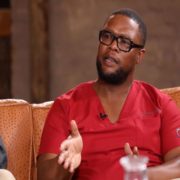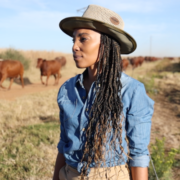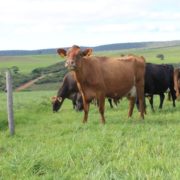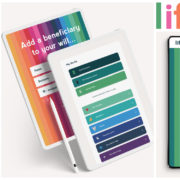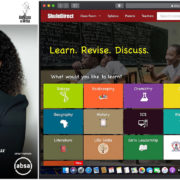By Lionesses of Africa Operations Department
Back in March of this year we begged all to keep focus, that we were not out of the woods yet, that in spite of Africa as a whole having had a relatively ‘good’ Covid war (and there is nothing good obviously about any deaths or business failure, but it was significantly below the horrific expectations for Africa, thankfully) in our Weekender article (here) entitled “Now is the time to focus!” we urged all to not relax – it’s not over by a long shot.
Sadly we were proved correct as the Delta Variant started to rip through the Northern Hemisphere. Countries that had left vaccination to the last minute or simply could not get hold of any, started to suffer terribly and there was a realization that there had been ‘far too much talk and no trousers’ when it came to finding enough vaccine for Africa. However many times people said that we are not safe until everyone is safe, yet again it was all too easy to forget Africa.
Following on from last week’s letter (here) showing the terrifying disruption caused by the rioting and looting in South Africa, we turned to a survey by the global giant in trade credit insurance and a recognized specialist in the areas of surety, debt collection, fraud insurance, structured trade credit and political risk, Euler Hermes. If anyone knows what is going on in the world, it is Euler Hermes and their clients.
So what were the most feared risks these giants of trade had at the top of their list in their ‘Global Supply Chain Survey – In search of post-Covid-19 resilience’ (here)?
Interestingly the top three fears stand at 41%, 40% and 40% of those surveyed (before anyone jumps on us – those surveyed could choose a top 3, so yes, this adds up to a bit more than 100% – well noticed!) and in the spirit of the Olympics that is just opening in Covid ravaged Tokyo, we would certainly call that a photo finish!
So with a Gold medal (just) at 41% we find Business Interruption causing supply chain disruptions in 1st place. How many times have we talked about major companies now looking to find local supply or ensuring that their own supply chain has resilience through paying early, on time and with a smile. This is real, all companies (worth their Salt) are pushing this aggressively. As we have said, reach out to your customers to see how you can work closer with them, if there are some large multi-national companies or large international companies nearby – pay them a visit and offer your products – what’s the worst that could happen? It’s worth a shot!
In joint Silver medal place with 40% each comes Cyber Incidents and the Pandemic. There is no doubt that Cyber Incidents (Cybercrime, IT failure/outage, data breaches, fines and penalties) are feared risks.
We mentioned last week, how massive Cybercrime, hacking and malware is becoming a huge problem, not only for large firms, but any that appear for whatever reason in the cross-hairs of these criminals. Losing your website, or even your internal systems must be every business leader’s worst nightmare. Before it becomes a real nightmare, work out what you would do. Where do you keep your backup? Is it ring fenced from the latest backup? A bug in today’s backup could very well infect yesterday’s and so on – so even if you had planned everything correctly, you would still end with egg on your face.
How well protected are your CRM and ERP systems, and will you still have access to this should your own systems crash? These are serious issues that only a ‘war-game’, as we mentioned last week, or a dry run will expose.
There is no way that you can forecast these, but you can call your staff in on a weekend and shut your systems off for a few hours and watch what happens. It is only having watched the ‘Rabbits caught in the headlamps’ or the ‘Headless Chickens’ running around that all will begin to realize just how serious this is. Obviously you need security of your data (so we suggest you don’t email your customer list or financials to everyone on your payroll and ask them to keep it safe!), but you do need to find some way of ensuring you can unlock and retrieve this when the lights go out. Plus of course resilience of your systems and backups, but when a malware does hit or your systems go down, at least you have a Plan B that can then kick in.
“It will never happen to me”, yet who thought that British Airways, HSBC and also AirBnB would be hit, not by malware, not by hacking, but by an old fashioned mistake by their content providers (see here). The entire internet was hit recently when Fastly a Content Distribution Network (‘CDN’ see here) went down, closing for a while Amazon, eBay and many others. A CDN holds details of all websites locally, so you don’t have to ‘fetch’ the information from say, the USA (which even at the speed of light, takes time), but can pick up the information far quicker locally. If that goes down your browser has no idea where to look!
All these things are happening daily, it’s no longer something that happens in NY, London or Tokyo and does not effect us.
Looking at the other Silver Medalist, the Covid Pandemic. In our discussions with Lionesses across Africa the first part of our conversation is always about Covid (not a surprise, this is the start of all conversations across the globe). Sadly the Delta Variant is ripping through Africa as well and in a non vaccinated continent, tragically there are no walls or firebreaks.
So what can we possibly do?
Herd immunity carries with it huge death and risks, so is something that we would hope is not being trialed by many countries, but we fear is happening.
One of the people who kindly worked with us at the Lionesses of Africa/Harvard conference entitled: “Women and the Changing Face of Entrepreneurship in Africa” (here) is a globally recognised expert in large real estate. His name is John Macomber and is part of the Harvard Business School, when not involved in his day job of advising on and investing in the construction of huge and safe buildings. He was recently part of The Lancet Covid-19 Commission and the Safe Work, Safe School, and Safe Travel Task Force that looked into how we could keep our schools and other large buildings containing many people milling around, coming in and out, safe. He recently alerted us via LinkedIn to the full reports which can be found here, but what we found most interesting was not just the results of their investigations on buildings, but also how these impacted the people within.
The reports states:
“Buildings play a critical role in minimizing, or conversely exacerbating, the spread of airborne infectious diseases. COVID-19 outbreaks occur indoors, and within-room long-range transmission beyond two meters (six feet) has been well- documented in conditions with no masking and low ventilation rates. However, the relationship between building systems and airborne infectious disease transmission predates SARS-CoV-2, the virus that causes COVID-19. Building-related interventions have been shown to reduce the spread of many other airborne infectious diseases, including severe acute respiratory syndrome (SARS), Middle East respiratory syndrome (MERS), tuberculosis, measles, and influenza.”
Yikes – that’s the last time we walk into a factory without a Hazmat suit!
But this is serious, for all of us who have factories, one infected person can quickly wipe out all or most of our workers. Recently won that large contract that will require your loyal employees to work overtime? One cough and it’s all over.
So what can we do.
Rule no.1 and in Gold position is Open the windows!
Opening windows works extremely well and is probably the Gold medal winner. Our Lionesses in Johannesburg with temperatures currently “Feeling Like” -6 degrees centigrade (according to a weather screenshot sent to us) will not be thanking us – sorry!
In Silver position is air conditioning/ventilation machines, but please have them taking air from the outside, a restaurant is mentioned in the report that simply recycled the air from within. This is the map of the air, that recycled the air from one sick person (see here full report):




